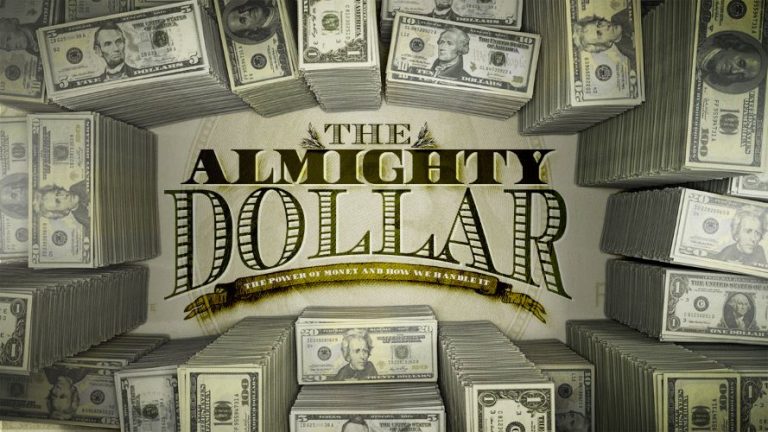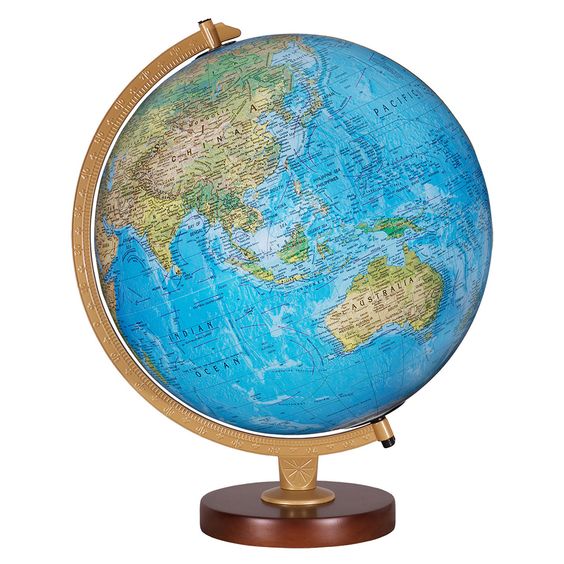
The currencies of 65 countries are pegged to the value of the dollar and the American greenback is the official currency of five US territories and 11 foreign countries
By Tom Arms
The Almighty Dollar is a bit too mighty for a growing number of countries. They want to curb it.
That was one of the driving forces behind this week’s 5-nation BRICS meeting in Johannesburg and the reason why another 40 want to join the latest political/economic organization. Six of the applicants were admitted to the club this week.
BRICS is the acronym for Brazil, Russia, India, China and South Africa—the current membership of the 14-year-old organization. It controls 26 percent of the world’s GDP as opposed to the G7’s 30.7 percent, although the G7 is dropping and will drop further faster with BRICS expansion.
For BRICS you could easily substitute China which dominates the BRICS economies. And for G7 just say America. Which means the two economic groupings have become political/economic weapons in the Sino-American clash.
Also read: BRICS Summit: Is a new bloc emerging to rival US leadership?
BRICS has thus become a diplomatic vehicle for the Chinese attempt to constrain the dollar as the world’s reserve currency or replace it altogether.
It has its work cut out for it. The dollar is indeed almighty. Eighty-seven percent of the world’s trade is conducted in dollars. The currencies of 65 countries are pegged to the value of the dollar and the American greenback is the official currency of five US territories and 11 foreign countries.
Being the world’s reserve currency bestows advantages on the US economy and the government that controls it. Chief among them is lower borrowing costs on the international market, which allows America to carry a bigger public spending debt then other countries.
It also means that the Federal Reserve Bank sets the benchmark for world interest rates. And the primary concern of America’s central bank is America, not the billions of people in other countries whose economies depend on the monthly meetings of the Federal Reserve. On top of all the above, America controls the two biggest lending institutions: the World Bank and the International Monetary Fund.
But what particularly angers China, and its “partner without limits” Russia, is the power the dollar gives Washington to unilaterally impose sanctions and ensure their compliance by third countries. The desire to bust US sanctions is also one of the aims of one of the newly-admitted BRICS members—Iran.
Their answer to their sanctions problem is a new reserve currency. They are, however, a bit vague about the structure it should take but the solution they appear to favour is a floating reserve based on a basket of currencies from the world’s leading economies. The idea is not new. The Russians proposed it in 2009 when they were members of what was then the G8. The UN Conference on Trade and Development (UNCTAD) and the IMF have also suggested it.
Read more: BRICS Summit 2023 Highlights: BRICS invites Saudi Arabia, 5 other nation to join bloc, PM Modi congratulates new members
But there are problems with any BRICS/Chinese/Russian-led initiative to replace the dollar. Basically it is the radically different political structures of BRICS members. The dominant member of BRICS is a one-party autocratic state. Three of its other members are democracies—flawed, but still basically democracies. Two of them, Brazil and India, are hesitant about damaging their relationship with Washington.
If five countries cannot agree on a policy to confront the almighty dollar how can they expect 11 countries to concur, let alone the 45 that some BRICS supporters advocate?
On the opposing side is a grouping of 40 developed world countries who, by and large, share common democratic values, a belief in the capitalist system and are either members of the EU or tied to the United States through defense and economic agreements.
But even among this largely cohesive group there are mumblings of discontent about Washington’s tendency to weaponise the dollar with unilateral sanctions. The French and Germans are particularly concerned about the checks it imposes on their foreign policy.
America to their mind has abused the power of the dollar by imposing sanctions against non-American companies that refuse to comply with sanctions against America’s perceived enemies. One of the problems of power is that if you abuse it, you run the risk of losing it.
 World Review
World Review
Mutineer Yevgeny Prigozhin—and the nine other passengers on his private plane—this week joined a long and growing list of “Putin’s Bodies.” Those on the grisly register share one common fatal flaw: They dared to cross the Russian president.
The tally starts with 1,300 innocent victims. It was 1999. Putin was yet to become president. But as prime minister and head of the FSB he needed a false flag operation to win support for his war in Chechnya. It is alleged, therefore, that he bombed a Moscow apartment building and blamed it on Chechen terrorists. Three hundred died and 1,000 were injured. Putin got his war.
Politician Sergei Yashenkov made the mistake of uncovering evidence linking Putin to the bombing. He was shot in the chest in 2003. Former KGB agent Alexander Litvinenko also accused Putin of the apartment block bombing. He was poisoned in London in 2006 with polonium-laced tea.
Journalists are a favourite target of the Russian president. Paul Klebnikov, chief editor of the Russian edition of Forbes, was busy writing a series on Kremlin corruption when he was killed in a drive-by shooting in 2004. Anna Polikovskaya accused Putin of turning Russia into a police state. She was shot in the lift of her apartment building in 2006. Natalia Estemirova specialized in exposing human rights abuses. She was abducted outside her home and later found in a wood with a bullet in the head.
Human rights lawyer Stanislaw Markelov was walking down the street with his friend Anastasia Buburova when they were both gunned down in 2009.
Russian media mogul Mikhail Lesin was in Washington and on the verge of cutting a deal with the FBI on corruption charges. He was found beaten to death in his hotel room in 2015.
Boris Berezovsky fled Russia for exile in Britain after daring to challenge Putin. He was found dead in his Berkshire home. The inquest returned an open verdict. Boris Nemtsov accused Putin of being in the pay of corrupt oligarchs. He was shot in the back on a Moscow street in 2015.
The Ukraine war has resulted in a new crop of victims. Businessman Dan Rapoport was found dead in Washington in August 2022 after criticizing the invasion of Ukraine. And in India, another prominent Russian businessman, Pavel Antonov, fell from his hotel room window in December 2022. And finally, Ravil Maganov—also a critic of the war—died in in September 2022 of a mysterious “short and serious illness,” which is usually shorthand for poisoned.
Tales of Putin’s Russia read like a Mario Puzo novel.
***
The second race to the moon has begun. India has made a giant step by being the first to land at the moon’s South Pole.
Access to the southern tip is vital for the long-term aim of establishing colonies on the moon. This is because scientists have located ice in that part of the lunar surface. Water is not only essential to life. It is also a coolant for equipment and an element in rocket fuel.
India, however, is only one of the six countries in the current dash. The others are Russia, China, South Korea, United Arab Emirates and, of course, America.
The Russians got off to a bad start. While the Indians were successfully landing their Chandrayaan-3 space vessel, Moscow’s craft was crashing on the lunar surface.
China has had considerable success with lunar orbits and intends to plant a Chinese flag on the moon’s surface by the end of this decade. The Japanese have the same ambition.
South Korea and the United Arab Emirates are the dark horses in the race and are being cagey about exactly when they will put a person on the lunar surface. Completely open is NASA with its Artemis program. Next year, Artemis 1 will orbit the moon and the following year Artemis 2 will land a four-person politically correct crew which will include a woman and a person of colour.
The US has a series of nine Artemis voyages planned and by the end of the ninth they hope to have a string of permanent moon bases. These will be used to train astronauts for a trip to Mars.
Commercial companies are also involved in the moon race. Elon Musk’s SpaceX Company has been touting a moon trip since 2017. It has yet to materialize, but NASA is using his rocket technology for the Artemis program.
Another company—Circumlunar is selling seats for a lunar orbit at $150 million each, while Golden Spike has put a price tag of $750 million on the opportunity to walk on the moon’s surface.
***
This week’s Republican Party debate was scary. The scariest thing was that the star performer of the night was dangling off the right-wing edge of the political spectrum.
Virek Ramaswamy is a tech multi-millionaire who is a total novice to politics but ran vocal circles around the eight experienced politicians on the stage. His views, however, made the others look like looney liberals.
They included: raising the voting age to 25; cutting aid to Ukraine and forcing them to concede territory to Russia; a suggestion that the federal government was involved in 9/11 and abolishing the FBI, Internal Revenue Service, The Nuclear Regulatory Agency and the Department of Education.
The one policy on which Ramaswamy and most of his fellow candidates agreed was that climate change is a hoax. The only hold-out was former UN Ambassador Nikki Haley who was also a stand-alone on full-throated support for Ukraine.
But perhaps the most disturbing words spoken were not on the debating platform but in a pre-recorded interview from Donald Trump’s Truth Social Network. The former president decided that because he is 50 points ahead of his nearest rival (which he is) that it would have been beneath of him to join the political fray.
Instead he gave a long interview to former Fox News host Tucker Carlson which was released just as the rest of the pack were walking on stage. It was classic Trump, long, meandering musings peppered with conspiracy theories and no-holds-barred attacks on opponents. He expected the Democrats to “steal” the 2024 election. The Left were “savage animals” who would probably assassinate him.
But the most frightening comment came in the form of an exchange between Carlson and Trump. “Do you think America is headed to civil war,” asked Carlson. “I don’t know,” mused Trump. Then he added: “But I can say this: there’s a level of passion I have never seen before. There is a level of hatred I have never seen, and that is a bad combination.”
The face of passion and hate was on show for the world after Georgia’s Fulton County police released their mug shot of Donald Trump.
______________
 Tom Arms is foreign editor of Liberal Democrat Voice. He is also the author of “America Made in Britain” and co-host of the weekly world affairs podcast “Trans-Atlantic Riff” which can be heard by clicking here
Tom Arms is foreign editor of Liberal Democrat Voice. He is also the author of “America Made in Britain” and co-host of the weekly world affairs podcast “Trans-Atlantic Riff” which can be heard by clicking here
https://open.spotify.com/show/3ntjretAKNLZNFpA5ZEGDG